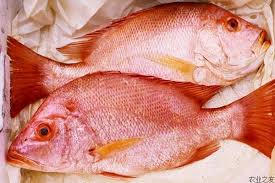Fish poisoning is a special form of food poisoning that can occur after eating mussels, fish, crabs and other marine creatures. Fish poisoning poses a serious health risk, which in the worst case can lead to the death of those affected. In case of suspected fish poisoning, a doctor should be consulted immediately.
Definition of Fish Poisoning
Fish poisoning in the narrower sense is to be understood as intoxication caused by poisons in marine food. These are also called Toxidrome or fish poisoning Toxidrome. Colloquially, however, the term “fish poisoning” is also used in gastrointestinal infections caused by bacteria in fish, shellfish and crabs, although this is actually not a poisoning. The fish poisoning is sometimes further divided into fish poisoning in the true sense and mussel poisoning
A number of different mechanisms are involved in fish poisoning. Some species are inherently poisonous, the toxins of other species are acquired from organisms on which they feed: yet another form of fish poisoning is caused by breakdown products of bacterial action Ciguatera Poitoning. This can lie acquired from a large number of specie , about 300 in all, whose common characteristic is the narrow range of reef or coastal tropical water which they inhabit. The toxin is thought to originate in blue-green algae consumed by herbivorous fish which are in turn the prey of carnivorous species.
Causes and symptoms of fish poisoning
The fish poisoning manifests itself usually very quickly after the toxin intake by massive gastrointestinal complaints, such as abdominal pain , diarrhea , nausea and vomiting . Here, the symptoms of fish poisoning are very similar to those caused by infection with pathological microorganisms.
However, the various toxins found in marine foods (more than 50 toxic substances are known here) can cause numerous other ailments. For example, saxitoxins, which are found among others in mussels or oysters, in addition to the gastrointestinal discomfort often associated with visual disturbances and at worst with fatal paralysis of the respiratory or cardiac muscles.
The actual source of the poison are certain algae (or unicellular organisms that live on it, so-called dinoflagellates), which are taken up by the mussels, whereby the toxins accumulate in the mussels. Saxitoxins can kill people as little as 0.2 milligrams in humans.
The toxin accumulates in the tissues and is excreted very slowly Poisoning of this type is difficult to prevent, because the toxin is stable to heat, cold, and drying, and the taste and smell of the fish are unaffected. Symptoms commonly begin several hours after ingestion. but may be almost immediate. Nausea and vomiting are followed by paresthesias of the face, mouth, and limbs, dizziness, ataxia, muscular weakness, and severe muscle pain The patient may die from respiratory paralysis during the first day. and in nonfatal cases the neuritic symptoms may persist for many weeks. No immunity is gained by an attack; indeed, a second episode of poisoning may be more severe.
Fish poisoning By Tetrodotoxin
A special form is the tetrodotoxin poisoning. Tetrodotoxin is also known as puffer fish poison and unfolds after eating a fatal effect on the nerve and muscle function. Already in the first hour after consumption, those affected show significant deficits, such as paralysis of the muscles, coordination and disturbance of consciousness.
Under certain circumstances, the paralysis also affects the respiratory muscles, which leads to death of the patient if medical care is not provided. From a dose of 0.5 milligrams to one milligram, tetrodotoxin is fatal.
Diagnosis OF Fish Poisoning
Since the first symptoms usually occur relatively short time after consumption, the context is often easy to recognize also for laymen. However, the question remains whether pathological microorganisms or bacteria or toxins cause the symptoms. Potentially ingested germs can be detected by stool, the toxins can be determined by means of a blood test.
Treatment with fish poisoning
The treatment is generally aimed initially at balancing the fluid loss. Intoxication may also require artificial respiration. Here, an attempt is then made to relieve the effect of the poison, but often there is no specific antidote available. For example, in the Ciguatera only a therapeutic relief of the symptoms can be achieved because no antidote is known.
In order to achieve the fastest possible removal of toxins from the organism, in emergency medicine also worked with activated carbon, which should help in the form of high-dose tablets to excrete the toxins found in the digestive tract. If the patients are treated in good time, the fish poisoning can usually be controlled and rarely leads to the death of those affected.
